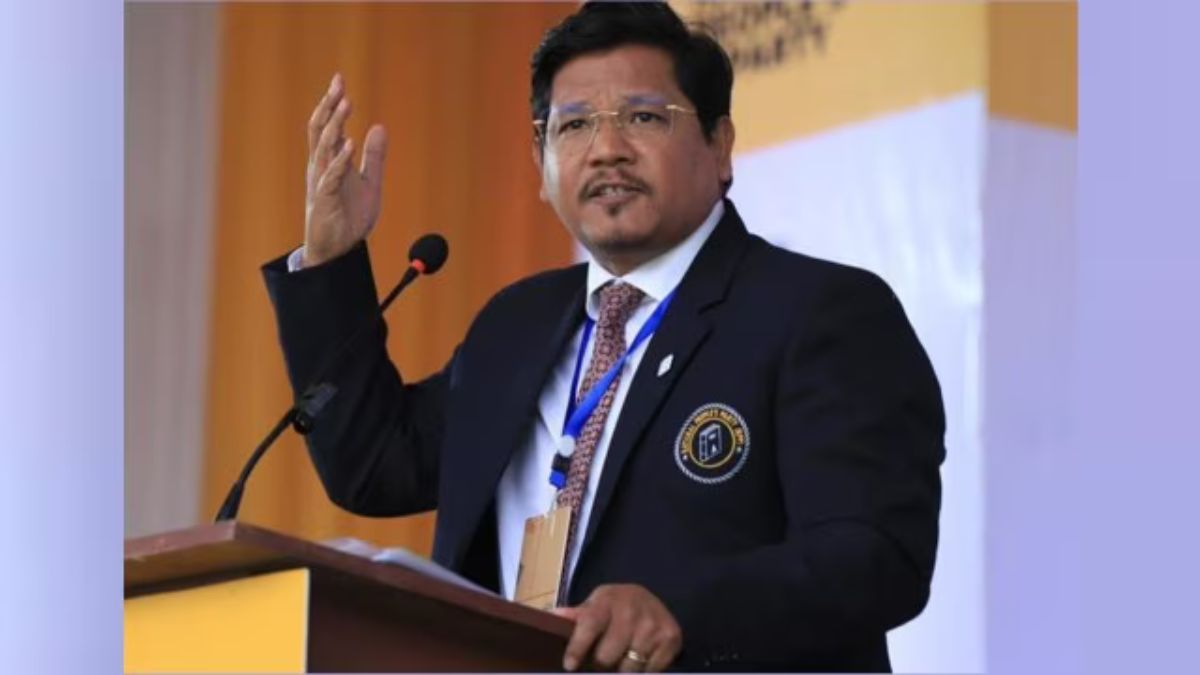NPP Withdraws Support from BJP Government in Manipur; Emerges as Main Opposition

In a significant political development in Manipur, the National People's Party (NPP) has officially withdrawn its support from the Bharatiya Janata Party (BJP)-led government. This move has been described as a "huge setback" for the Congress party, as the NPP, now with seven MLAs, surpasses Congress to become the main opposition in the state assembly. Congress currently holds only five seats.
The decision by the NPP to pull out support was conveyed through a letter to BJP National President JP Nadda by NPP chief and Meghalaya Chief Minister Conrad Sangma. The letter cited the deteriorating law and order situation in Manipur as the primary reason for the withdrawal, stating that the BJP-led government under Chief Minister N Biren Singh had "completely failed to resolve the crisis and restore normalcy."
Despite this political shift, the BJP government in Manipur remains stable. With 46 MLAs still backing the BJP, including support from allied parties like the Naga People's Front (NPF) and Janata Dal (United) (JD(U)), the government retains a comfortable majority in the 60-member assembly.
In response to the escalating situation, Union Home Minister Amit Shah convened a high-level meeting in New Delhi today. The agenda was to discuss strategies for peace restoration in Manipur. The meeting focused on the immediate steps to be taken to quell the violence and address the grievances of different ethnic groups in the state. Shah emphasized the central government's commitment to ensuring peace and security in Manipur, indicating that all necessary measures would be employed to stabilize the region.
The political dynamics in Manipur have been volatile, with ethnic tensions between the Meitei and Kuki communities leading to frequent clashes. The NPP's decision might reshape the political landscape in the coming months, especially with upcoming assembly sessions where opposition strength will play a crucial role in legislative debates and policy critiques.
As the situation unfolds, both state and central authorities are under pressure to address the underlying issues fueling the unrest and to navigate the new political realities in Manipur.
